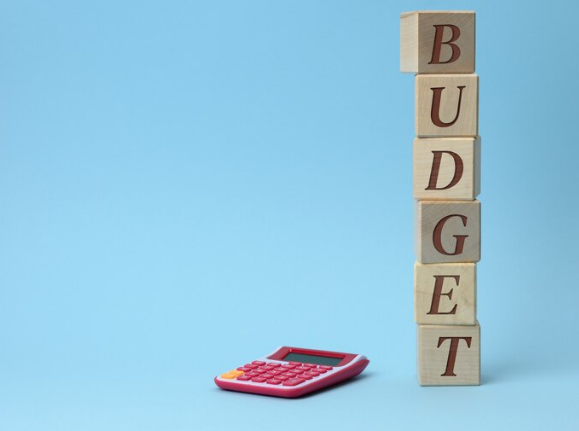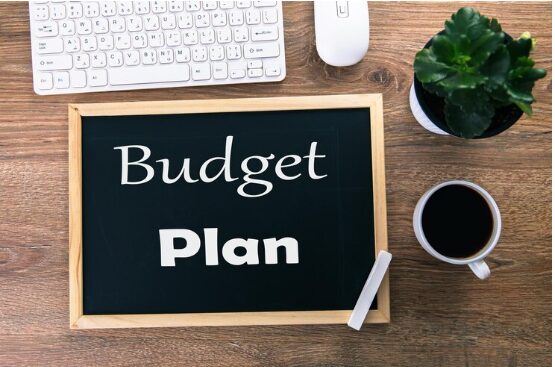What Are The 2 Major Components Of A Budget?
The Two Essential Components of a Comprehensive Budget are:
Income and Expenses: The Foundations of a Comprehensive Budget
Crafting a comprehensive budget is essential for gaining financial control and achieving your monetary goals. At the core of any well-structured budget lie two fundamental components: income and expenses. Understanding the role and interplay of these two elements is crucial for effectively managing your finances.
Table of Contents
Mastering Income: Identifying and Quantifying Your Earnings
The first step in building a comprehensive budget is to accurately identify and document your sources of income. This includes your primary employment earnings, any side hustles or freelance work, investment returns, and any other recurring or occasional monetary inflows. By clearly delineating your various income streams, you can gain a clear picture of your overall financial resources and establish a solid foundation for your budgeting efforts.
Once you have identified your income sources, the next step is to quantify them. This involves determining the precise amounts you can expect to receive from each income stream, whether it’s a consistent paycheck, variable commission-based earnings, or irregular lump-sum payments. Accurately estimating your income is crucial, as it will serve as the starting point for allocating your available resources.
Taming Expenses: Categorizing and Tracking Your Spending
The second essential component of a comprehensive budget is a thorough understanding of your expenses. This involves meticulously cataloging and categorizing your various spending patterns, from fixed obligations like rent or mortgage payments to variable costs such as groceries, utilities, and entertainment. By breaking down your expenses into distinct categories, you can gain deeper insights into your spending habits and identify areas where you may be able to optimize or reduce your outlays.
One effective strategy for managing expenses is to track your spending in real-time. This can be achieved through the use of budgeting apps, spreadsheets, or even good old-fashioned record-keeping. By consistently monitoring your expenditures, you can spot trends, identify areas of overspending, and make informed decisions about where to allocate your resources.
Balancing Income and Expenses: The Keystone of a Comprehensive Budget
With a clear understanding of your income and expenses, the next step is to strike a balance between the two. This involves aligning your spending with your available resources, ensuring that your outflows do not exceed your inflows. By carefully managing this equilibrium, you can avoid the pitfalls of debt, maintain financial stability, and work towards your long-term financial goals.
One effective approach to balancing income and expenses is to establish a system of prioritization. Start by allocating funds to essential expenses, such as housing, utilities, and basic necessities. Then, allocate resources to other discretionary spending, savings, and investment opportunities, ensuring that your overall expenditures do not exceed your total income.
Adaptability and Continuous Refinement: The Hallmarks of a Robust Budget
It’s important to recognize that a comprehensive budget is not a static document, but rather a dynamic tool that requires ongoing attention and refinement. As your financial circumstances change, whether it’s a shift in income, the emergence of new expenses, or the implementation of new financial strategies, your budget must be adjusted accordingly.
By regularly reviewing and updating your budget, you can ensure that it remains a accurate reflection of your financial reality and a reliable guide for your decision-making. This adaptability and continuous refinement is the hallmark of a truly comprehensive and effective budget, one that empowers you to achieve your financial goals and navigate the ever-changing landscape of personal finance.
The two major components of a comprehensive budget are income and expenses. By meticulously identifying, quantifying, and balancing these elements, you can gain control over your financial well-being, make informed decisions, and work towards a more secure and prosperous future. Remember, a well-crafted budget is not just a tool for managing your finances, but a roadmap to financial success and personal empowerment.
Balancing Income and Expenses: Key Factors for Effective Budgeting
Defining the Key Components of a Balanced Budget
Developing and maintaining a well-structured budget is essential for achieving financial stability and reaching your monetary goals. At the core of an effective budget are two major components: income and expenses. Understanding the interplay between these two elements is crucial for creating a budget that aligns with your financial needs and priorities.
Identifying and Tracking Income
Income represents the funds you receive from various sources, such as your primary employment, side gigs, investments, or government benefits. Accurately identifying and tracking all your income streams is the first step in creating a comprehensive budget. This includes regularly updating your income information to ensure your budget reflects any changes or variations in your earnings.
Categorizing and Monitoring Expenses
Expenses encompass all the costs associated with your day-to-day living, including fixed expenses (such as rent, mortgage payments, or car loans) and variable expenses (like groceries, utilities, or entertainment). Meticulously categorizing and monitoring your expenses is crucial for understanding where your money is being allocated and identifying areas where you can potentially cut back or optimize your spending.
Achieving Balance: Aligning Income and Expenses
The key to an effective budget lies in finding the right balance between your income and expenses. This involves carefully analyzing your income sources and your spending patterns to ensure that your outgoings do not exceed your earnings. By maintaining this equilibrium, you can avoid the pitfalls of overspending, accumulating debt, or falling short on savings and investments.
Prioritizing Essential Expenses
When creating a budget, it’s essential to prioritize your essential expenses, such as housing, food, and utilities. These fixed costs should be allocated first, ensuring that your basic needs are met. Once the essential expenses are accounted for, you can then focus on managing your variable expenses, such as entertainment, dining out, or discretionary purchases.
Optimizing Variable Expenses
Variable expenses often provide the most flexibility in a budget, as you have more control over these costs. By carefully tracking and categorizing your variable expenses, you can identify areas where you can potentially cut back or find more cost-effective alternatives. This might involve adjusting your spending habits, negotiating bills, or finding ways to reduce your discretionary spending.
Allocating Funds for Savings and Investments
A well-rounded budget should include allocations for savings and investments. This allows you to build up your financial resilience, prepare for future goals or emergencies, and potentially grow your wealth over time. Establishing clear savings targets and automating the transfer of funds to dedicated savings accounts can help ensure that your savings remain a priority in your overall budget.
Continuous Monitoring and Adjustment
Budgeting is an ongoing process, and it’s essential to regularly review and adjust your budget to ensure it remains aligned with your financial situation and evolving needs. Continuous monitoring of your income and expenses, as well as identifying areas for improvement, can help you maintain a balanced budget and achieve your financial objectives.
By understanding the two major components of a budget – income and expenses – and learning how to effectively manage and balance them, you can gain greater control over your financial well-being and work towards a more secure and prosperous future.
Conclusion
Crafting an Effective Budget: Mastering the Essential Components
Balancing Income and Expenses: Key Factors for Effective Budgeting
Budgeting is a fundamental aspect of personal finance, and it plays a crucial role in achieving financial stability and reaching your financial goals. At the heart of an effective budget lie two essential components: income and expenses. By carefully tracking and managing these two elements, you can gain control over your financial situation and make informed decisions that align with your priorities.
One of the primary objectives of a comprehensive budget is to ensure that your income exceeds your expenses. This delicate balance is the cornerstone of financial well-being, as it allows you to allocate resources appropriately, save for the future, and avoid the pitfalls of overspending. However, achieving this balance is not always straightforward, as life often presents unexpected circumstances that can disrupt the equilibrium.
Accurately estimating your income is the first step in building a robust budget. This involves carefully reviewing your sources of income, whether it’s a steady paycheck, freelance work, or any other form of revenue. By having a clear understanding of your earnings, you can better plan for your expenses and identify opportunities for saving or investing.
Equally important is the diligent tracking and categorization of your expenses. This process allows you to identify areas where you can potentially cut back or optimize your spending. From necessary expenses like rent, utilities, and groceries to discretionary spending on entertainment, dining out, or travel, every dollar spent should be accounted for and aligned with your financial objectives.
One effective strategy for managing expenses is to establish a system of categorization. By organizing your expenses into different categories, such as housing, transportation, healthcare, and entertainment, you can gain a deeper insight into where your money is going and make more informed decisions about where to allocate your resources. This level of detail can also help you identify areas where you might be able to reduce spending and redirect those funds towards your savings or other financial goals.
Another crucial aspect of effective budgeting is the incorporation of savings and debt repayment. It’s essential to set aside a portion of your income for savings, whether it’s for an emergency fund, a down payment on a home, or retirement. By prioritizing savings, you can build a financial cushion that can help you weather unexpected events and work towards your long-term financial aspirations.
Similarly, addressing outstanding debts, such as credit card balances, student loans, or personal loans, should be a key component of your budget. Devising a strategic plan to systematically pay down these obligations can significantly improve your financial health, reduce the burden of interest charges, and free up resources for other financial objectives.
Implementing a comprehensive budget requires diligence, discipline, and a willingness to adapt to changing circumstances. As your financial situation evolves, it’s important to regularly review and adjust your budget to ensure that it remains aligned with your goals and priorities. This iterative process can help you identify areas for improvement, capitalize on new opportunities, and maintain a healthy financial footing.
The two major components of an effective budget – income and expenses – are the cornerstones of financial well-being. By meticulously tracking and managing these elements, you can achieve a delicate balance that allows you to save, invest, and pay down debts, all while ensuring that your spending aligns with your values and long-term financial objectives. Embracing the discipline of budgeting can empower you to take control of your financial future and unlock the path to financial stability and prosperity.






